Past Events
December 2025 | |
| Thu 11 Dec 2025 13:00 - 14:00 | Seminar: Thomas Schreiber (Stuttgart): A Transfer Entropy Story Centre for Complex Systems This talk will be centered around the concept of transfer entropy, as introduced some 25 years ago. An insider's recollection will be presented that outlines the irritation that eventually led to its definition. An outsider's view will then be given... |
| Thu 4 Dec 2025 13:00 - 14:00 | Seminar: Edon Kelmendi (QMUL) Centre for Complex Systems |
| Wed 3 Dec 2025 14:00 - 15:00 | Seminar: Kim Kreienkamp (TU Berlin): Exceptional points in active non-reciprocal mixtures Centre for Probability, Statistics and Data Science Non-reciprocal couplings significantly impact the collective dynamics of mixtures. A particularly striking consequence of such couplings is the spontaneous emergence of time-dependent phases that break parity-time symmetry. Here, we study a... |
November 2025 | |
| Thu 27 Nov 2025 13:00 - 14:00 | Seminar: Francesco Coghi (U Nottingham): Large deviations in self-interacting jump processes Centre for Complex Systems Self-interacting jump processes are stochastic systems where transition rates depend on the process's own empirical occupation measure, introducing a feedback that breaks Markovianity. In this talk, I will present a large deviation framework for such... |
| Thu 13 Nov 2025 13:00 - 14:00 | Seminar: Lorenzo Giambagli (FU Berlin): Emergent global dynamics of topological signals Centre for Complex Systems This talk explores the emerging field of topological signals, dynamical variables defined on higher-order networks such as simplicial or cell complexes. These are functions defined on simplicial complexes that generalize the idea of node-based... |
| Fri 7 Nov 2025 13:00 - 15:00 | 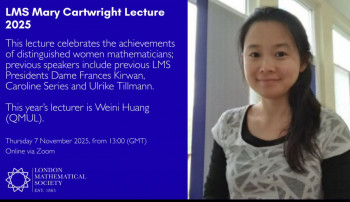 LMS Mary Cartwright Lecture 2025 LMS Mary Cartwright Lecture 2025Faculty of Science and Engineering The London Mathematical Society (LMS) is delighted to announce that the 2025 Mary Cartwright Lecture will be given by Weini Huang (QMUL). The Mary Cartwright Lecture is an annual lecture organised by the Committee for Women and Diversity in Mathematics and forms part of the annual programme of Society Meetings. The event was established by the LMS in 2000 and is named after Dame Mary Lucy Cartwright, the first female mathematician FRS, the first woman to receive the Sylvester Medal, the first... |
| Thu 6 Nov 2025 13:00 - 14:00 | Seminar: Jin Yan (Weierstrass Institute, Berlin): Spatiotemporal dynamics and critical transitions in coupled dissipative systems Centre for Complex Systems Coupled nonlinear systems with dissipation and external driving — whether periodic or non-periodic — exhibit remarkably rich spatiotemporal dynamics, ranging from synchronisation and pattern formation to chimeras (partial synchronisation) and... |
| Tue 4 Nov 2025 10:00 - 16:00 |  AI Collaborative Workshop AI Collaborative WorkshopCentre for Probability, Statistics and Data Science We aim to bring together experts in AI and those using (or hoping to use) AI methods in their research, from all the five Schools of the Faculty of Science and Engineering. We envisage that the workshop will strengthen the ties between Schools, build a research community around the development and use of AI and develop teams and ideas well ahead of funding calls. Participation by registration: Registration is now closed. Organisers: Marcella Bona, Thomas Roelleke, Kostas Papafitsoros,... |
October 2025 | |
| Thu 30 Oct 2025 13:00 - 14:00 | Seminar: Alessandro Lonardi (QMUL): Message-Passing on Hypergraphs: Detectability, Phase Transitions and Higher-Order Information Centre for Complex Systems Community detection is a long-standing problem in the study of complex systems. While the detectability limits of communities in networks are well understood, much less is known for hypergraphs. In this talk, I will present: (i) a message-passing... |
| Wed 15 Oct 2025 12:00 - 13:00 | Seminar: Norberto Lucero-Azuara (QMUL): Modelling the movements of organisms by stochastic theory in a comoving frame
Centre for Probability, Statistics and Data Science How do living organisms move in their environment? While random walk models provide a foundation for understanding biological movement, they fall short in capturing the full complexity of movement patterns generated by living organisms. This study... |
| Mon 13 Oct 2025 13:00 - 14:00 | 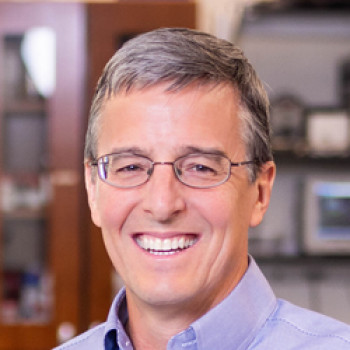 Seminar: Sir Peter Mansfield Lecture: "Bioelectronics – From Exploratory Research to Medical Translation" by Professor John Rogers, Querrey Simpson Institute for Bioelectronics, Northwestern University Seminar: Sir Peter Mansfield Lecture: "Bioelectronics – From Exploratory Research to Medical Translation" by Professor John Rogers, Querrey Simpson Institute for Bioelectronics, Northwestern University
Centre for Electronics Bioelectronics – From Exploratory Research to Medical Translation Please do register for the seminar at this link Advanced electronic/optoelectronic technologies designed to allow stable, intimate integration with living organisms will accelerate progress in biomedical research; they will also serve as the foundations for new approaches in monitoring and treating diseases. Specifically, capabilities for injecting miniaturized, biocompatible electronic systems and other components into... |
| Thu 9 Oct 2025 13:00 - 14:00 | Centre Meeting Centre for Complex Systems |
| Thu 9 Oct 2025 15:00 - 16:00 | Seminar: Jeroen Lamb (Imperial): Intermittent two-point dynamics at the transition to chaos for random circle endomorphisms Centre for Complex Systems We establish the existence of intermittent two-point dynamics and infinite stationary ergodic measures for a class of random circle endomorphisms with zero Lyapunov exponent, as a dynamical characterisation of the transition from synchronisation ... |
| Wed 8 Oct 2025 14:00 - 15:00 | Seminar: Ohad Vilk (Racah Institute of Physics, Hebrew University of Jerusalem): From Diffusion to Strong Anomalous Diffusion: Modeling Movement of Free-Ranging Birds
Centre for Probability, Statistics and Data Science Abstract: Anomalous diffusion, characterized by a nonlinear dependence of the mean-squared displacement on measurement time, is prevalent in nature, ranging from molecular motion at microscopic scales to the large-scale trajectories of migrating... |
| Thu 2 Oct 2025 13:00 - 14:00 | Seminar: Xueming Liu (Huazhong U): Directed Networks and Critical Translations Centre for Complex Systems This talk follows one narrative from collapse to repair in directed, multilayer networks. In interdependent systems we show how direction reshapes tipping behaviour, producing rich phase structure and abrupt failures under targeted perturbations; the... |
| Wed 1 Oct 2025 14:00 - 15:00 | Seminar: Luca Giuggioli (University of Bristol): First-passage dynamics of a stochastic searcher in disordered systems
Centre for Probability, Statistics and Data Science Abstract: Understanding how spatial disorder affects the random search of a diffusing particle or agent is fundamental to a myriad of applications across disciplines. To quantify how spatial heterogeneities may affect the dynamics of first-passage... |
September 2025 | |
| Thu 25 Sep 2025 13:00 - 14:00 | Seminar: Yongzheng Sun (China U of Mining and Technology): Oscillations and Resilience of Ecological Networks Centre for Complex Systems Understanding the transition from stability to instability in ecosystems is crucial for maintaining ecosystem functionality and preserving biodiversity. In this talk, I will examine this issue from a network science perspective, investigating how... |
| Wed 24 Sep 2025 13:00 - 14:00 | Seminar: Sidney Holden (Flatiron Institute): A continuum limit for dense spatial networks Centre for Complex Systems Many physical systems—such as optical waveguide lattices and dense neuronal or vascular networks—can be modeled by metric graphs, where slender "wires" (edges) support wave or diffusion equations subject to Kirchhoff boundary conditions at the... |
| Thu 18 Sep 2025 13:00 - 14:00 | Seminar: Piero Mazzarisi (U Siena): Realized Random Graphs, a new inferential methodology for dynamic networks, with an application to the Interbank market Centre for Complex Systems We introduce a new inferential methodology for dynamic network models driven by latent state variables. The main idea is to obtain a noisy representation of the state variables' dynamics by computing a sequence of cross-sectional estimates of the... |
August 2025 | |
| Fri 22 Aug 2025 14:30 - 16:30 | 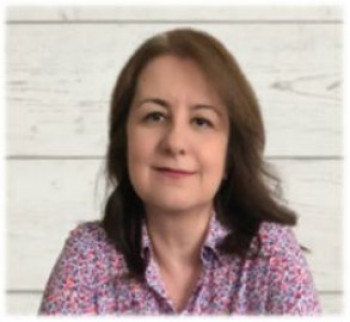 Seminar: Fundamentals of Computational Electromagnetics: From Basics to Mastery - Professor Özlem Özgün from Hacettepe University, Ankara, Turkey Seminar: Fundamentals of Computational Electromagnetics: From Basics to Mastery - Professor Özlem Özgün from Hacettepe University, Ankara, TurkeyCentre for Electronics (Click Here to Join the Seminar on Teams) Summary Computational Electromagnetics (CEM) is an interdisciplinary field that combines principles from electrical engineering, physics, mathematics, and computer science to simulate and analyze electromagnetic phenomena. It serves as a cornerstone for the design and optimization of practical systems such as antennas, microwave circuits, radars, satellites, wireless communication devices, and emerging applications in nanophotonics and biomedical... |
June 2025 | |
| Tue 10 - Thu 12 Jun 2025 | Conference: Charting Complexity Centre for Complex Systems This conference brings together leading researchers and innovators working across disciplines to explore how complexity shapes the world around us. From emergent collective behavior to the structure and dynamics of networks, from Computational Social... |
| Tue 10 Jun 2025 11:30 - 12:30 | 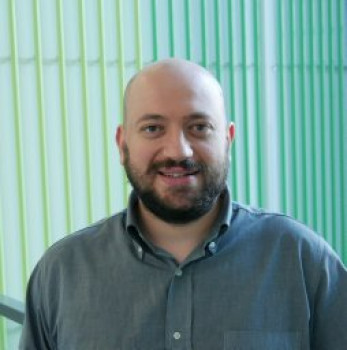 Seminar: Terahertz and Water presented by Dr Fabio Novelli from The University of Southampton Seminar: Terahertz and Water presented by Dr Fabio Novelli from The University of SouthamptonCentre for Electronics Click Here for Teams Link Summary An inherently powerful tool to study liquid water is terahertz (THz) radiation because it can reveal the sub-ps fluctuations of the water network: radiation between about 1 and 25 THz is strongly absorbed by intermolecular collective modes of hydrogen-bonded water molecules, which can be thought of as "small and short-lived phonons". The talk is divided into two parts. In the first part I will describe a novel approach, dubbed "intense THz time-domain... |
May 2025 | |
| Wed 28 May 2025 14:00 - 15:00 | 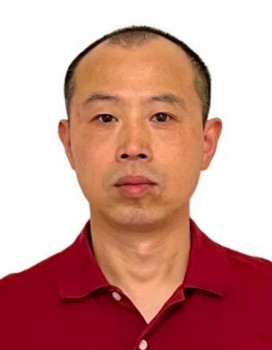 Seminar: IEEE Distinguished Lecture on Sensor Location Optimisation for Effective and Robust Beamforming Seminar: IEEE Distinguished Lecture on Sensor Location Optimisation for Effective and Robust BeamformingCentre for Electronics Online Teams Link Summary In many applications, the sensor array's geometrical layout is assumed to be fixed and given in advance. However, it is possible to change the geometrical layout of the array including adjacent sensor spacing and these additional spatial degrees of freedom (DOFs) can be exploited to improve the performance in terms of either beamforming or direction finding or both. With the development of compressive sensing (CS) or the sparsity maximization framework, a new CS... |
| Tue 27 May 2025 15:00 - 16:00 | Hernan Makse (City U New York): Can symmetry describe Biological (and Artificial) complexity? Centre for Complex Systems Symmetry is the cornerstone of theoretical physics, playing a crucial role across various scales. The pervasive presence of symmetries in the physical universe compels us to examine the question: if life arises as an emergent property from physical... |
| Thu 8 May 2025 13:00 - 14:00 | Seminar: Petr Jizba (Prague): Thermodynamics in Cosmology and Cosmology in Thermodynamics Centre for Complex Systems It is strongly expected that a new physical understanding of the role of entropy in the transition from thermodynamics to gravity should provide new ingredients and insights for modern cosmology and in particular for such pressing issues as dark... |
| Fri 2 May 2025 10:30 - 11:30 | 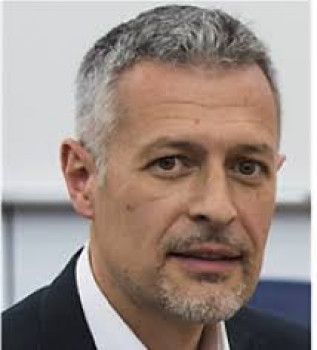 Seminar: Cyber-Prosthetics as Body-centric Electromagnetic Devices: From Structural to Metal-free Bio-integrated Antennas Seminar: Cyber-Prosthetics as Body-centric Electromagnetic Devices: From Structural to Metal-free Bio-integrated AntennasCentre for Electronics Online Teams Link Summary The concept of Cyber-Prosthesis redefines implantable devices not only as mechanical surrogates but also as bodycentric wireless nodes capable of sensing, storing, and transmitting biophysical information. Within this paradigm, the structural components of prosthetic implants—such as orthopedic fixtures, dental screws, stents, and heart valves—are converted into antenna systems operating in the UHF RFID band. These systems communicate through body tissues by... |
April 2025 | |
| Wed 30 Apr 2025 10:30 - 11:30 | 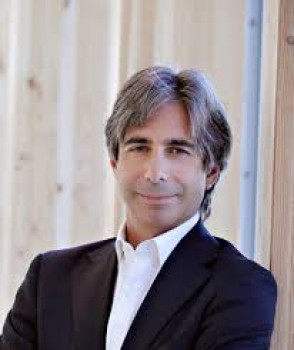 Seminar: Interfacing Electromagnetics With Life Sciences and Medicine: Bioelectromagnetics and brain-machine interfaces for the treatment of cognitive conditions, glaucoma, and disorders of the retina Seminar: Interfacing Electromagnetics With Life Sciences and Medicine: Bioelectromagnetics and brain-machine interfaces for the treatment of cognitive conditions, glaucoma, and disorders of the retinaCentre for Electronics Online Teams Link Summary Although technical challenges are still daunting, the clinical utility of neuroprosthetics has increased dramatically over the past few years. This has been accomplished through the convergence of numerous disciplines, which have individually added fundamental understanding/capabilities to systems that interface with the human body to restore senses and movement, or treat prevalent diseases that have currently no foreseeable cure. In this talk, we will cover... |
| Thu 10 Apr 2025 13:00 - 14:00 | Seminar: Gadi Fibich (Tel Aviv U): Spreading Processes on Networks Centre for Complex Systems Spreading of innovations and epidemics is a classical problem. Traditionally, they have been analyzed using compartmental models (Bass, SI, …), which implicitly assume that all the individuals are homogeneous and connected to each other. To relax... |
| Thu 3 Apr 2025 13:00 - 14:00 | Seminar: Yotam Smilansky (U Manchester): Dynamics and resonances of hyperbolic tilings Centre for Complex Systems Substitution rules provide a classical method for constructing aperiodic tilings of Euclidean space. In my talk I will describe how they may additionally generate tilings of the hyperbolic upper-half space, extending constructions previously... |
March 2025 | |
| Thu 27 Mar 2025 13:00 - 14:00 | Seminar: Jörg Neunhäuserer (TU Braunschweig): A new family of expansions of real numbers Centre for Complex Systems |
| Thu 20 Mar 2025 13:00 - 14:00 | Seminar: Dibyajyoti Mohanta (New York State U): From Sequence-Specific Fluorescence Fingerprints to Aging in RNA Condensates: Dynamics of Heteropolymer Systems Centre for Complex Systems Heteropolymer systems provide a versatile framework for understanding biomolecular phenomena across scales. In this talk, we bridge two distinct domains: (1) optical DNA mapping (ODM), a technique for generating sequence-specific fluorescence ... |
| Thu 13 Mar 2025 13:00 - 14:00 | Peter Orbanz (UCL): Limit theorems for distributions invariant under a group of transformations Centre for Complex Systems Consider a large random structure -- a stochastic process on the line, a random graph, a random field on the grid -- and a function that depends only on a small part of the structure. Now use a family of transformations to 'move' the domain of the... |
| Thu 6 Mar 2025 13:00 - 14:00 | Seminar: Vittorio Loreto (La Sapienza): Exploring the Adjacent Possible: a mathematical lens on Innovation and Evolution Centre for Complex Systems New experiences continuously reshape our lives, whether through encounters with novel ideas, social interactions, or technological advancements. While some of these experiences occur randomly, many unfold through intricate chains of correlation and... |
| Wed 5 Mar 2025 | One-day ergodic theory meeting Centre for Complex Systems |
February 2025 | |
| Wed 26 Feb 2025 15:00 - 16:00 | Seminar: Enrico Amico (U Birmingham): Higher-order connectomics of human brain function Centre for Complex Systems Traditional models of human brain activity often represent it as a network of pairwise interactions between brain regions. Going beyond this limitation, recent approaches have been proposed to infer higher-order interactions from temporal... |
| Thu 20 Feb 2025 13:00 - 14:00 | Seminar: Carl Dettmann (U Bristol) Centre for Complex Systems |
| Thu 13 Feb 2025 13:00 - 14:00 | Seminar: Lachlan Burton (QMUL) Centre for Complex Systems |
| Wed 5 Feb 2025 12:00 - 13:00 | Seminar: Deniz Eroglu (Imperial) - Learning Network Dynamics from Data: Emergent Hypergraphs and Transitions to Synchronization Centre for Complex Systems In complex systems, networks of interconnected components often evolve based on intrinsic rhythms. A key challenge is to understand these systems by inferring appropriate models from observational data. In this work, we explore methods for learning... |
January 2025 | |
| Thu 23 Jan 2025 13:00 - 14:00 | Seminar: Venkata Pamulaparthy (UCL) - Towards neural reinforcement learning for large deviations in nonequilibrium systems with memory Centre for Complex Systems Machine learning methods have recently been developed for computationally intensive investigations of rare events in nonequilibrium systems. However, present methods have generally been designed for Markov processes, presenting a major limitation due... |

